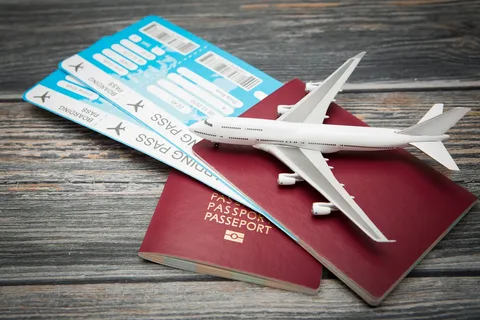How To Claim Compensation For A Flight Delay Or Cancellation?

Introduction:
Travelers from all over the world may now experience unmatched convenience thanks to air travel, which has become a crucial component of modern living. Even the most painstakingly planned itineraries can be derailed by unforeseen events like airplane delays or cancellations. Fortunately, when these difficulties occur, travelers have rights and options for requesting reimbursement.
This book seeks to give readers a thorough understanding of the process for requesting compensation for airline delays or cancellations, ensuring that readers are informed of their legal options and equipped to pursue compensation.
Flight delay solicitors specialize in assisting passengers who have experienced flight delays, cancellations, or disruptions, advocating for their rights, and seeking compensation from airlines. These professionals possess a deep understanding of aviation regulations and laws, enabling them to navigate complex legal processes on behalf of their clients.
By leveraging their expertise, flight delay solicitors aim to ensure that affected passengers receive the compensation they deserve for the inconvenience and potential financial losses they’ve suffered due to flight-related issues.
How Do I File a Flight Delay or Cancellation Compensation Claim?
1. Understanding Passenger Rights:

Before delving into the process of claiming compensation, it’s essential to have a clear understanding of your rights as an air passenger. Various regulations, such as the European Union’s Regulation 261/2004, protect passengers’ rights in the event of flight disruptions. These regulations outline the eligibility criteria, compensation amounts, and circumstances under which passengers are entitled to compensation.
2. Conditions:
To be qualified to submit a claim to receive reimbursement due to a missed flight or cancellation, the following conditions must be met:
All applicable legislation, such as European Union Regulation 261/2004, must be followed during the flight.
The rule must be applicable at the place of departure or arrival.
To be qualified for reimbursement, the delay must exceed a certain time limit (often 3 hours).
The transport provider should be responsible for delays or cancellations that occur for regular causes.
3. Documentation Collection:

Compiling the required paperwork is a vital phase in the compensation procedure. Among these records are boarding passes.
information on booking a flight.
airline documentation of any delays or cancellations.
any correspondence with airline or airport personnel.
receipts for additional costs (such as lodging and food) incurred as a result of the disruption.
4. Contacting the Airline:

As soon as you experience a flight delay or cancellation, it’s important to initiate contact with the airline. This can often be done at the airport’s customer service desk. Request a written confirmation of the delay or cancellation reason, as this documentation will be necessary for your compensation claim.
5. Know Your Passenger Rights:

Familiarize yourself with air passenger rights regulations, such as the EU Regulation 261/2004 (for flights departing from or arriving in the EU), the U.S. Department of Transportation’s rules, and similar regulations in other regions. These regulations outline the compensation and assistance you’re entitl to in case of flight disruptions.
6. Submitting a Claim:
Submitting a compensation claim can be done through various channels, including:
Online claim forms are provided by the airline.
Written letters to the airline’s customer service department.
Specialized claim management companies that can assist you in the process (for a fee).
Ensure your claim includes all relevant details, supporting documentation, and a clear statement of your entitlement to compensation.
7. Patience and Persistence:
The compensation process might not always be straightforward. Airlines can be inundated with claims, leading to delays in processing. It’s important to remain patient and persistent in following up on your claim.
8. Using Alternative Dispute Resolution (ADR):
You can look into alternative dispute resolution procedures if the airline rejects your claim or provides an inadequate resolution. Online forums, ombudsmen, and national enforcement agencies can help passengers and airlines communicate and resolve disputes.
9. Legal Action as a Last Resort:
If all else fails, you might consider taking legal action to claim your compensation. However, this step should be approach cautiously, as legal proceedings can be time-consuming and expensive.
10. Additional Tips and Considerations:
Keep Records:
Maintain copies of all correspondence, receipts, and documentation related to the disruption and your claim.
Stay Informed:
Keep abreast of updates in regulations and rights to ensure accurate information when making a claim.
Document Expenses:
If the disruption leads to additional expenses, such as accommodations and meals, keep detailed records and receipts for reimbursement.
Time Limits:
Be aware of any statutes of limitations for filing claims. In the EU, for example, claims can usually be made within a specific timeframe (e.g., 2 or 3 years).
Flight Compensation Companies:
While some companies specialize in managing compensation claims for passengers, be cautious and research their reputation before engaging their services.
Conclusion:
Flight delays and cancellations need not be a source of frustration and disappointment. Passengers have rights and avenue for claiming compensation, ensuring that their travel plans are not derailed without recourse. By understanding your rights, collecting the necessary documentation, following the appropriate channels, and being persistent, you can navigate the compensation process effectively and assert your rights as an air traveler.



